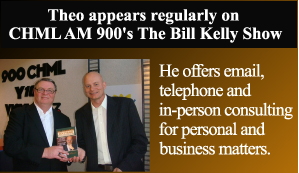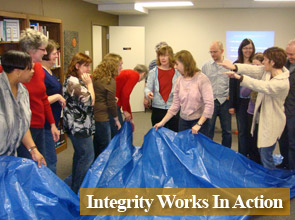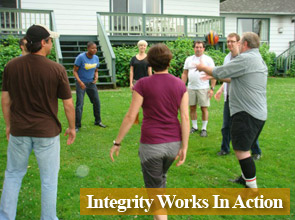A while back, Joseph Hall, a health reporter with the Toronto Star, wrote a fascinating article about how employees are making their bosses sick. He quoted a study from the journal of Social Science and Medicine, published by U of T sociologist Scott Schieman, explaining why people with more authority in the workplace do not tend to get more physical and psychological benefits along with their increased income and power.
In fact, people in authority positions were found to have greater levels of physical and mental health problems, including headaches, backaches, psychological anxiety and distress. Schieman explains that this is due to “being exposed to more interpersonal conflict in the workplace, problems with other people, directing other people’s work, incompetent workers, and bringing work home with them more often than others who don’t have authority”.
The finding that people in authority seem to have some greater health issues may come as a surprise to people, especially those who feel like their incompetent managers are making them sick. Perhaps this will generate some sympathy for people in authority positions. Apparently it’s not always so great to have more responsibility even if it comes with more money and power. Of course it’s debatable just how much power people in management positions necessarily have. After all, the term “middle management” doesn’t have many positive associations.
It’s hard to separate the health impact of taking work home from dealing with unhappy and unproductive employees, so it’s not exactly fair to say that employees are making managers or supervisors ill. And stress is not generated externally, but originates from a person’s perception, so one can’t make a cause and effect between employee behaviour, taking work home, and health, but the study does open the door to an interesting question: How can people in leadership, managerial, or supervisory positions benefit from their position and not have it negatively affect their well being?
Here are some tips that might help, starting with the more obvious:
1) Learn how to effectively deal with conflict and how to effectively communicate. If much of the downside of being in authority is about dealing with challenging people and with conflict, then leaders and managers need to take thorough training in conflict resolution and effective communication. Both involve very specific skills that do not come naturally. (Tip: Communication includes learning how to listen.)
2) Hire the right people. That’s obvious, but taking the time to hire people with values and skills aligned with your mission is not going to happen through over reliance on personality measures. You need to know how to ask the right questions that will reveal the real person behind the resume.
3) Trust your people. Once you’ve hired them, resist the desire to over control them. Give them autonomy along with your supervision. Set clear outcomes and then allow them to do their job. Let their creativity shine and acknowledge them when they succeed. There’s no point in hiring people if you still feel their work is all on your shoulders.
4) People who stay healthy often have the ability to enjoy the moment and reflect on successes. If you rush from one responsibility to another without being able to celebrate the difference you’re making and the success you have, you are a top candidate for burn-out. Not only that, but people will feel stressed out around you. They’ll likely feel that nothing is ever good enough for you, and that’s hardly going to inspire great effort from the people you’re managing. Do stop and smell the roses.
5) Think of why you have this position of authority and what benefit it can bring you and others other than more money. You’re in a position of influence. You can use your position to make other people’s lives more meaningful and enjoyable. Focus on that as much as any other aspect of your job and what you’re supposed to produce. Enjoy the moments you have with people and your responsibilities won’t seem so onerous.
6) Tons has been written about work/life balance and much of it has been crap. Life is not something that starts after work or leaves off before work. All that idea does is set up conflict between work and play and family and leisure. Nothing is ever totally balanced, and though you need to try to make time for as much of what’s important to you as you can, you don’t stop living at work. Your interactions with people, the productivity that you are part of, the impact you can make on the lives of others, all that is part of living. Yes, sometimes you will need to bring work home, but make sure you bring “home” to work as well!
7) Try not to take yourself too seriously. Life really would carry on without you, and your organization would likely survive. As a person in authority you do have additional responsibilities, but that doesn’t quite make you God just yet. If you can’t imagine taking some time off, try imagining being hit by a bus. You’d definitely have to take time off then and while you were in the hospital the sun would still shine and your people would still show up at work (hopefully after visiting you). Why wait for a bus to hit you in order for you to get a grip?
8) Be playful. Yes, at work when it’s appropriate. There’s nothing like humour to ease tension, maintain perspective, and inspire creativity. Crack a joke now and then. Be a bit goofy. Your employees will love you for it, especially when combined with a more serious side when necessary.
9) Remember this very simple rule: You can only do what you can do. Nothing can change that. No matter what the expectations of others may be, no matter how serious the circumstance might be, nothing can change the fact that you, like every other human, are limited by your capacity. There’s a great exercise I do with “Type A” people and people who are burned out to demonstrate this. All you need are a big bag of jelly beans. Now try to count as many of them as you can in one minute. Count them again and again. You’ll find that you may improve in speed but at some point you’ll reach a ceiling. Try passing through that ceiling and all you’ll do is lose accuracy and begin to miscount the jelly beans. You just can’t physically do more, no matter how much you try or how many more jelly beans some one else may want you to count. (If you really want to recreate work, have someone half way through change what you’re supposed to count or add more beans, or change the amount of time you’re given). I like this exercise and variations of it because you get to eat jelly beans when you’re done.
10) Accept the limits of what you can control. Few things bring on more stress than attempting to gain control over things that can’t be controlled. Yes, you can try to influence people. But ultimately the perspectives, motivations, expectations, feelings, and behaviours of others (be they people who you answer to or people who answer to you) are things you cannot ever be assured of being able to direct exactly the way you might wish. Try this exercise: Write down all the things you can control. Sorry to spoil the surprise, but all you’ll be able to write down are internal to you. Your thoughts, your feelings, your behaviours, your choices, are all that you can hope to control. Everything is subject to the “Do the best you can” philosophy. Learning to let go of the need to control through coming to terms with and accepting how little you can control, is critical to well-being. Consider reading “The Serenity Prayer”.
Ideally you’ve worked hard to gain the authority you’ve been given. And yes, authority does tend to come with added responsibility, but how much pressure you allow that to generate, and how much it changes your mental and physical state is to a large extent up to you. Do the best you can, make a positive impact on others, and enjoy the responsibility and the position you have.
Theo Selles, M.Sc.












